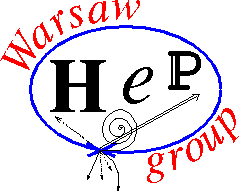SEMINARIUM FIZYKI WIELKICH ENERGII
Dnia 26 marca (piątek) o godzinie 10:15, odbędzie się seminarium, na którym zostanie wygłoszony referat pt.:
„The KATRIN experiment: neutrino mass measurements with sub-eV sensitivity and future prospects”
Referuje: Dr. Alexey Lokhov (University of Muenster)
Arlsruhe TRItium Neutrino experiment (KATRIN) is searching for the signature of the neutrino mass in the endpoint region of the tritium beta-decay spectrum. KATRIN combines a high-intensity gaseous molecular tritium source with a high-resolution spectroscopy using electrostatic filter with magnetic adiabatic collimation to reach the target neutrino-mass sensitivity of 0.2 eV/c2, improving on the previous measurements by an order of magnitude. With the first science run of KATRIN the previous neutrino mass bounds were improved by a factor of two, with the first upper limit of 1.1 eV/c2 (90% CL).
In this talk an overview of the KATRIN experiment and its very recent results are presented. Our preliminary new results reaching a sub-eV neutrino-mass sensitivity based on the whole 2019 data-set will be discussed. In addition, the talk reports on the KATRIN exploration of interesting BSM physics cases and closes with an outlook on the future prospects of KATRIN.
Serdecznie zapraszamy
dr hab. Katarzyna Grzelak
prof. dr hab. Jan Królikowski
prof. dr hab. Aleksander Filip Żarnecki
The meeting will take place on zoom.us platform.
Join Zoom Meeting
https://us02web.zoom.us/j/
Meeting ID: 845 1609 6743
Passcode: HEP_UW

